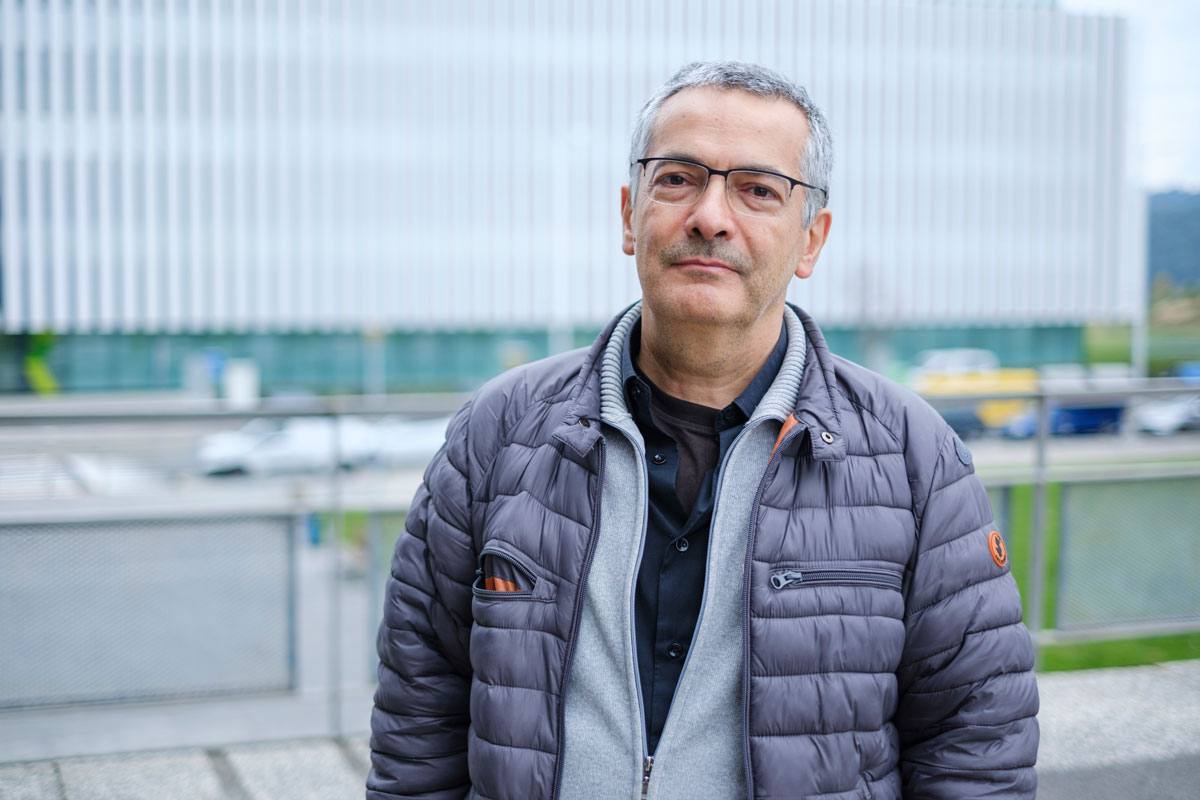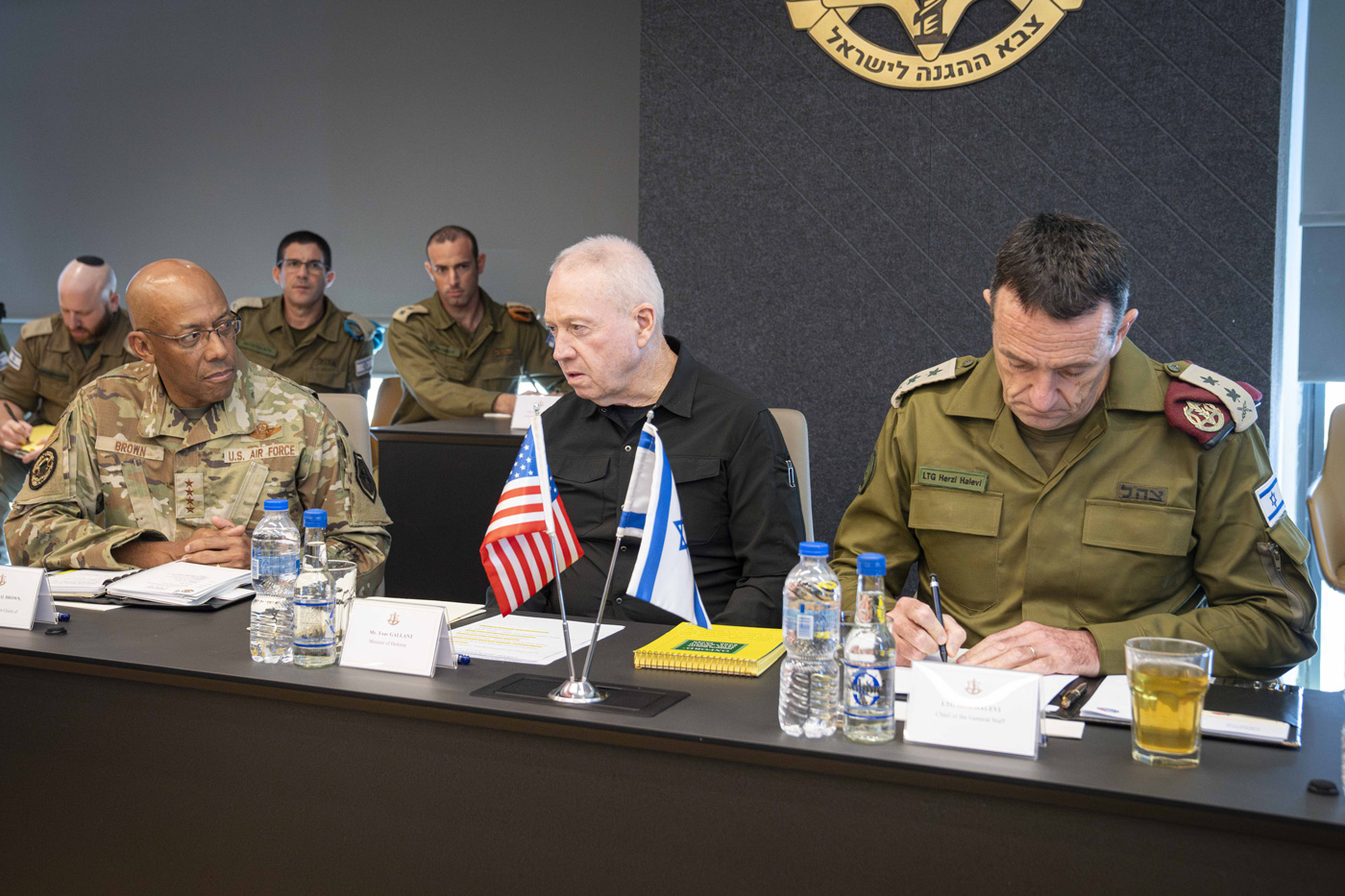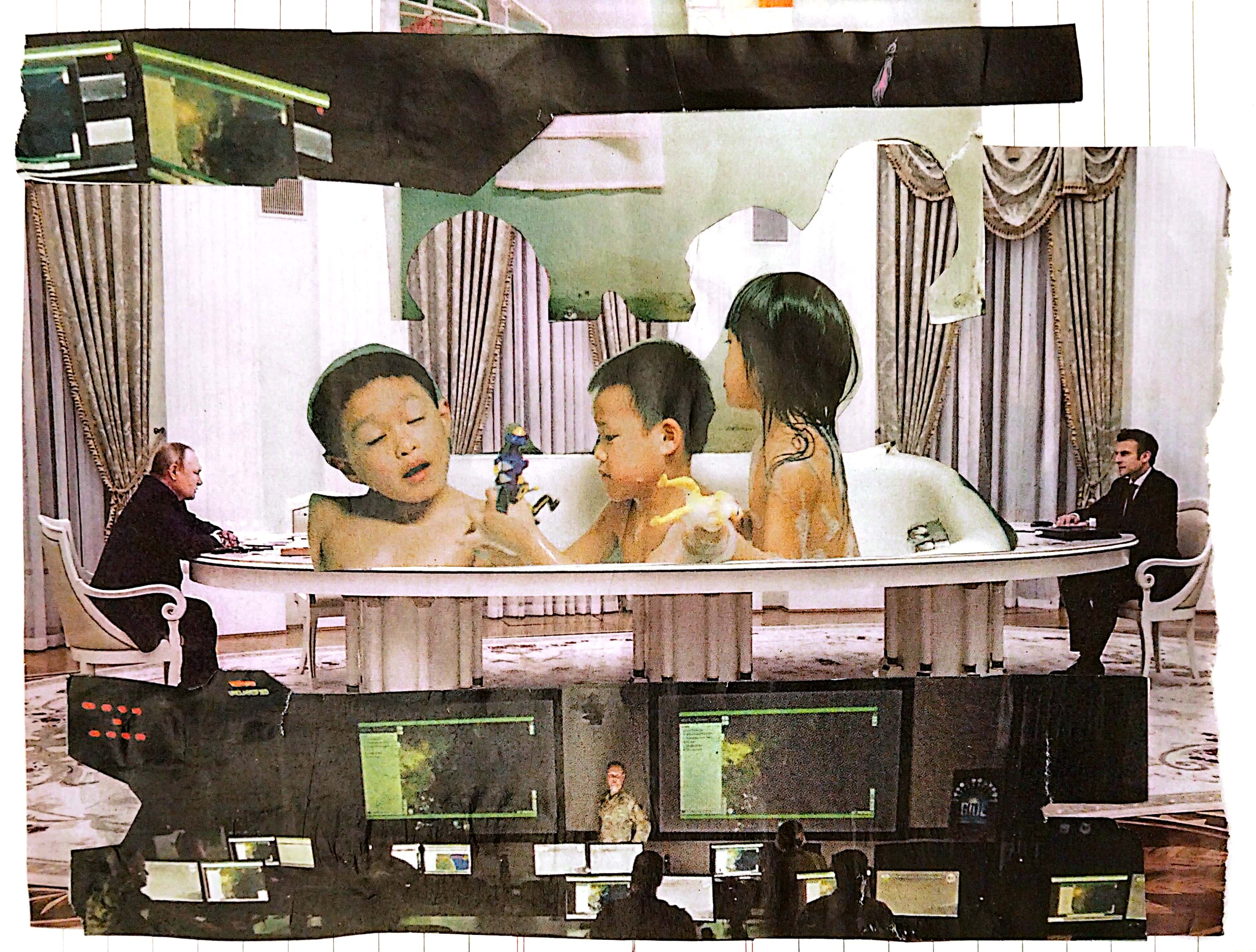"Hunger is once again used as a weapon of war"
- Karlos Pérez de Armiño (Bilbao, 1964) is professor of International Relations at the UPV/EHU and is also a member of the Hegoa Institute of the University. He has always been concerned about food security and, lately, a team from Hegoa, led by him, has worked on developing a methodology to measure the impact of war tactics on the origin of hunger, in collaboration with the Action Against Hunger organization.

Relationship between hunger and conflict. It seems that the issue is rising.
Yes, at the international level it is boiling, and political, social and legal initiatives are under way. Particularly in Africa, the issue is in the African civil wars and the war in Ukraine. There, hunger is being used as a weapon of dictatorial warfare, which also arouses interest.
But the question is a long time ago, right?
There is a clear link between armed conflicts and hunger, especially between civil wars and hunger. In the last decades, since the 1980s, or most of the world wars are civil and are characterized because the civilian population is normally considered enemy and, therefore, many warlike tactics are contrary to it.
To punish people directly?
Yes. By forcing us to move, by taking away economic resources and land… Tactics that generate humanitarian crises are used and those that suffer most from war are civilians. So we have that relationship: wars are starving. And the data that shows this is that famine, not chronic hunger, but that most people who suffer from specific and severe food crises live in conflicting countries. Natural disasters also cause hunger, but war is the main cause. In 2020, among 135 million people with severe food insecurity, 77 million lived in countries in armed conflict.

But in particular, we are talking about using hunger as a war of arms.
Yes, in recent decades, research is mainly being done. Because it is a practice that has been used throughout the long history, but that seemed to be declining since the end of the Cold War, while, since approximately 2017, we are seeing the tactic of using hunger as a weapon of war reappearing. That same year, the United Nations discovered that there were four new and serious famines, and that, in those four cases, hunger was being used voluntarily as a weapon.
What are these countries?
Northeast of Nigeria, Yemen, Somalia and Syria. In all four, they use it against civilians, which arouses interest in the subject, both in the academic and in the operational spheres. In the academic field, a new wave has been created to analyze the topic in the opposite direction. That is to say, to what extent policies, programmes … are made in favour of food security, to avoid useful conflicts.
And at the operational level?
Non-governmental organisations, and UN agencies, are working to ensure that those who use hunger as a weapon can shoulder their responsibilities. That is, how these actors can be punished, how to bring them to international courts.
Is the issue not well defined in international law?
This is the third area, the legal and political. Civilians cannot be stripped of food during wars; the Geneva Conventions clearly prohibit it. It can use violence against the military, but the lives of civilians, resources, food, water and health services must be respected. The point is that the rule is very diffuse and the Geneva treaties are increasingly being violated. So in 2018, the UN Security Council adopted a very important resolution. On the one hand, it recognized that hunger is being used as a weapon of war. Secondly, it expressly prohibited it. And he finally opened a door to punish him.
"Civilians cannot be removed during wars, the Geneva Conventions prohibit it: you can use violence against the military, but the lives, resources, food, water and health services of civilians must be respected"
A door.
Yes, it is true that the resolution does not specify the way to impose the sanction, but, in any case, the resolution has caused the matter to be transferred to the highest body of international architecture, to the Security Council. It has been a diplomatic milestone reinforcing what the Geneva Convention says. The problem is that we have very little information about it. In the field of food security, early warning systems exist and different information collection methodologies (satellites, local surveys, crop analysis and prices) can be used to predict whether a food crisis is occurring. However, these systems hardly collect data on war tactics and, above all, on their influence on the origin of hunger. Not investigated, no local specific information. And if we want to punish those crimes and draw the attention of the public, we need concrete evidence. So he proposed the Anti-Hunger Action that we had to develop a concrete methodology to collect that information and contrast it.
How does hunger occur in wars?
Sometimes, rather than tactics, it is a general approach to supply disruption. For example, food cannot be introduced in Syria. Humanitarian aid is also suspended, which is prohibited under international law.
More specifically?
For example, poisoning water wells, stealing animals or sacrificing crops or warehouses, or placing anti-personnel explosives. For example, attacks on rural areas are frequent to cause direct damage or to increase food prices less directly, using speculation.
Thinking about data search engine security
“For a year now that we have completed the development of a methodology to measure the relationship between war tactics and hunger, the Action Against Hunger organization has tried to apply this methodology to a given country. But I cannot say which country it is, so as not to endanger the security of its members. This is very brief, careful information, because in the end, crime is the deliberate cause of hunger as a weapon of war, so agents can be transferred to international courts. Therefore, the first results of the methodology we presented in general, last May, not to mention where the data were from.”
Year of War, year of lie!
That is what the phrase says, and that is what reality confirms.
Given the situation of war in the world and in Europe, its constant upturn and the possible consequences that this has had and will have in Euskal Herria, last December several citizens... [+]
On 26 December, during an air strike, the Israeli Army killed five Palestinian journalists trying to reach the city. They killed 130 Palestinian journalists. This news has reminded me of a couple of things, the first, the persecution of true journalists in any part of the world,... [+]
The Centre Tricontinental has described the historical resistance of the Congolese in the dossier The Congolese Fight for Their Own Wealth (the Congolese people struggle for their wealth) (July 2024, No. 77). During the colonialism, the panic among the peasants by the Force... [+]
On November 25, International Day against Male Violence, the Steilas Feminist Union Feminist Secretariat has published a poster: Our body is a battlefield, and all the schools in Hego Euskal Herria have received it. We wish to denounce the violence suffered by women and children... [+]
“The time has come for courageous, comprehensive and noble proposals (…) for Euskal Herria to re-enter the world’s revolts,” said friend Hartu López Arana in her opinion article “For an effective aggression” published in ARGIA magazine in July 2018. Six years have... [+]
Japan, 6 and 9 August 1945, the United States launched an atomic bomb causing tens of thousands of deaths in Hiroshima and Nagasaki; although there are no precise figures, the most cautious estimates indicate that at least 210,000 people died at the end of that year. But in... [+]
The nuclear winter theory Paul J. It was the result of an investigation published in 1982 by Crutzen and John Birks. According to this study, "nuclear explosions and subsequent fires would release large amounts of soot, dust and ash into the atmosphere, causing a notable... [+]
On this rainy Sunday, we are responsible for the fate of people living in disquiet at the various conflicts that exist in the world. By far, it seems that we cannot be freed from the hands of many rulers acting towards power. Many human beings live in the world with the... [+]
The following infographic is based on the report number 55 of the Delàs Peace Research Center of Catalonia, published in October 2022. In the report, Xavier Bohigas, Pere Brunet, Teresa de Fortuny, Anna Montull García and Pere Ortega analysed in depth the links between... [+]
When I was a kid, it was customary at home to park what we were doing at eight o'clock in the afternoon, assemble the TV and watch the ETB1 news. At first, I was very irritated by those unjust changes in the night chain, and I was asking my parents how it was possible that, being... [+]











.jpg)








